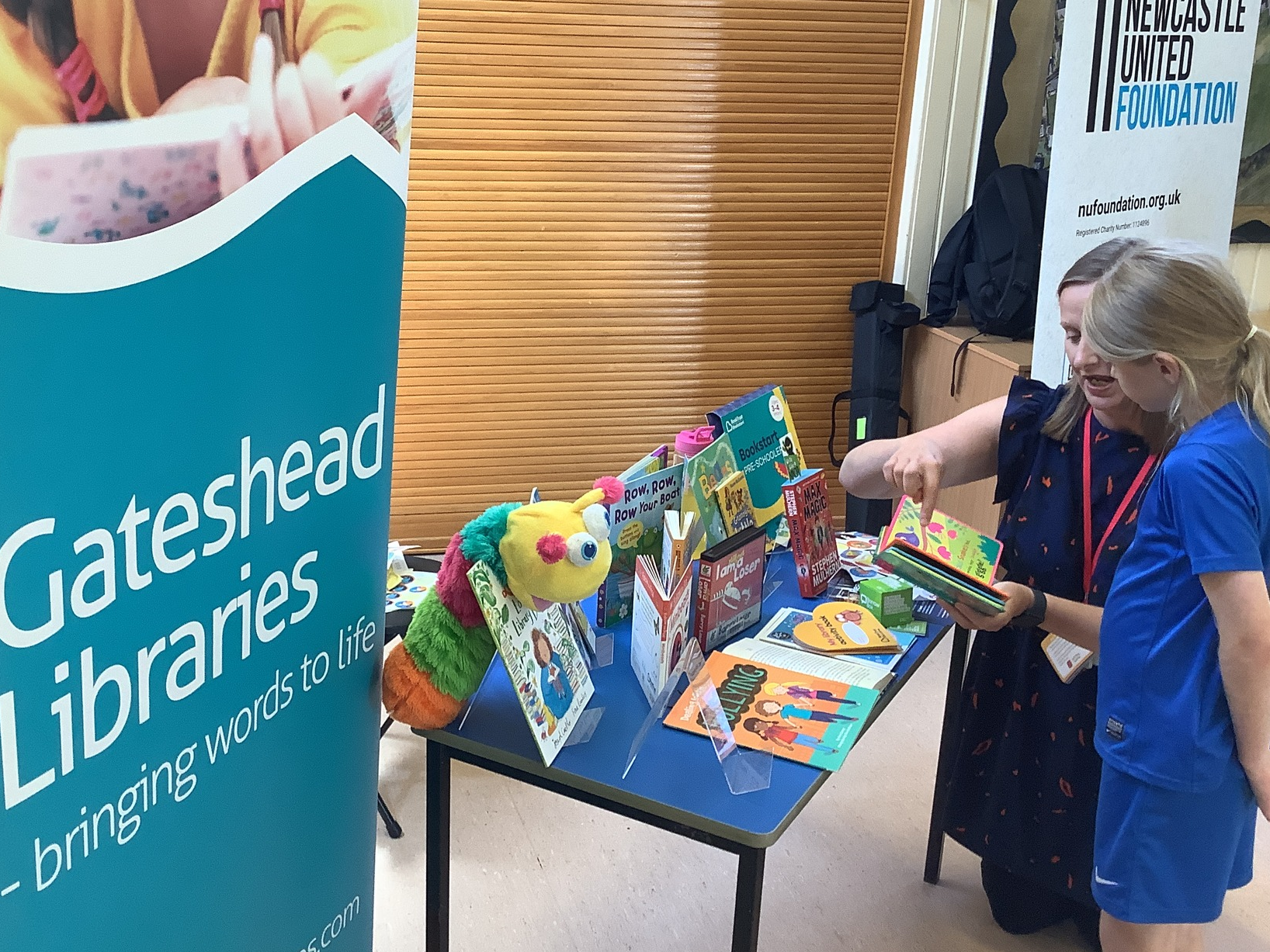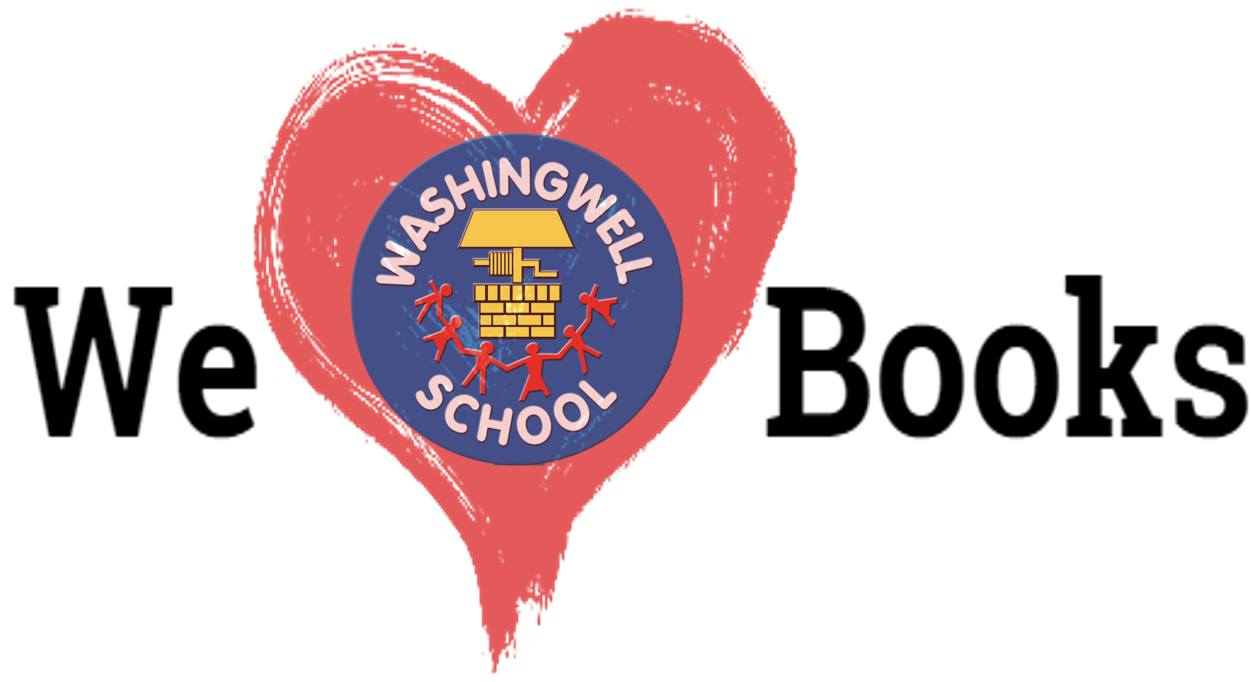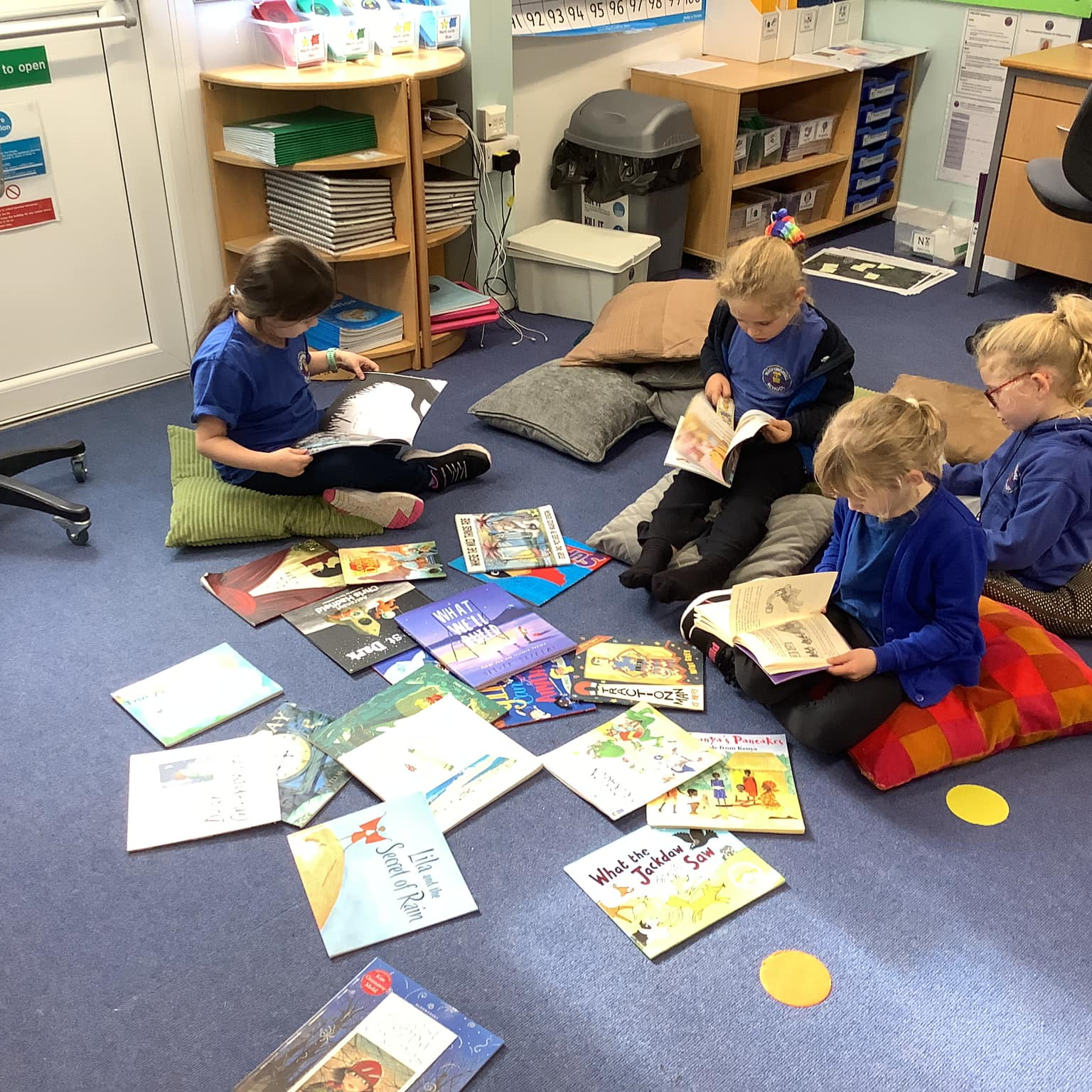English - Reading
Vision Statement:
At Washingwell, reading is at the heart of everything we do. It shines through our classrooms, our staff and our children. From Early Years right up to Year 6, children are immersed in high-quality and vocabulary-rich texts. Our staff share a love of stories with our children, transporting them to different worlds, igniting their imaginations and exposing them to the rich knowledge of both fiction and non-fiction texts, including a wide range of poetry.
Our school bases the core work in Reading around the National Curriculum, which aims to ensure that all pupils:
- Read fluently and confidently at and beyond age-appropriate expectations
- Enjoy reading and develop a love of books
- Acquire a wide vocabulary and develop an interest and love of words
- Understand fully what they read
- Monitor and self-correct own reading
- Understand how authors craft their writing
- Know and understand a range of genres
What does Reading offer children? How does it enhance the curriculum?
- Language Development: Reading introduces children to a variety of vocabulary and sentence structures, which aids in the development of robust language skills. This, in turn, improves their communication skills and enhances their ability to express themselves effectively.
- Cognitive Development: Reading stimulates the brain, fostering critical thinking, problem-solving, and analytical skills. Children learn to analyse information, make connections, and draw conclusions, which are essential skills for academic success and everyday life.
- Imagination and Creativity: Books transport children to different worlds, sparking their imagination and creativity. They learn to visualise scenes, characters, and events, expanding their creativity and ability to think outside the box.
- Empathy and Social Skills: Reading exposes children to diverse characters and situations, helping them understand different perspectives and empathise with others. This promotes social awareness and helps children develop empathy and compassion.
- Academic Performance: Strong reading skills are essential for academic success across all subjects. Children who read regularly tend to perform better in school, as reading helps them absorb information, understand complex concepts, and express their ideas effectively.
- Stress Reduction and Relaxation: Reading can be a soothing and relaxing activity for children, helping them unwind and reduce stress. Reading can enhance their ability to focus and concentrate, which can positively impact their overall well-being.
- Bonding and Relationship Building: Reading together can be a bonding experience for children and their parents or caregivers. It provides an opportunity for quality time together, fostering strong relationships and a love for learning.
What use is it to children in later life?
- Basic reading skills form the foundations for all aspects of future life – they are embedded in all aspects of everyday living.
- Effective reading skills provide lifelong learning for individual growth, meaningful employment, economic independence, civic participation and social justice.
Reading and Phonics at Washingwell
Early Reading
The Early Years Foundation Stage is key to engaging children in literature and sparking a life-long love of reading. At Washingwell, we strive to develop our children’s interest in books by providing daily opportunities for children to explore a wide selection of stories and immerse themselves in different texts, from traditional fairy tales to more contemporary children’s fiction. We learn new stories through story mapping, so the children can retell them with confidence, and we play with ideas and themes through Drawing Club, a fun way to develop our children’s imagination, expose them to new vocabulary, while developing the fine motor skills and pencil control required for early writing in a relaxed, non-threatening way.
We recognise the importance of using a systematic approach to the teaching of phonics to develop early reading and writing skills. We follow Unlocking Letters and Sounds, a structured synthetic phonics scheme that is validated by the Department for Education. Our team are experienced in delivering quality phonics teaching to make sure that every child makes progress, giving each child the support they need to progress. Children read to an adult at least weekly, as well as participating in weekly guided reading sessions to help embed their growing reading skills and extend their language. Working alongside parents and carers, we want to provide our pupils with the skills they need to have a successful start to their lives as readers and to ensure that our children develop a love of reading.
To see how phonics teaching progresses from Nursery to Year 2 please click the link below.
Key Stage 1
In Key Stage 1, children continue to learn phonics, with the aim to complete this aspect of their learning by the end of the first term in Year 2. Alongside their phonics lessons, they have group guided reading sessions which introduces children to developing their reading skills for comprehension. In Year 2 they bridge the difficult challenge of choosing from the graphemes (different spellings for sounds) when they are spelling and the introduction of spelling rules. Any children who have gaps in their phonics understanding undertake intervention for as long as necessary – these children are regularly assessed to understand their progress.
Key Stage 2
By the end of Key Stage 1 and into Key Stage 2, reading is taught as a specific lesson with the whole class. Our reading curriculum is planned using the National Curriculum to ensure there are clear skills and knowledge progression. Skills and knowledge are built on year-by-year and sequenced appropriately to maximise learning for all children. In whole class reading sessions, children develop their reading skills for comprehension; these are known as the VIPERS. (Vocabulary, Inference, Prediction, Explanation, Retrieval and Sequencing/Summarising). Children also continue to develop their reading fluency skills, building upon their phonics knowledge. For more information on VIPERS, please see our reading skills progression document for more information.
Home Reading
It is widely recognised that regular practice allows children to continue to develop their reading skills as well as develop their love for reading. We encourage an adult to read with their child/ren as often as possible and make comments in the children’s reading records. All children change their reading book on a weekly basis.
Reading Volunteers
At Washingwell, we have reading volunteers who work alongside some of are targeted readers on a 1:1 basis. Our reading volunteers are valuable members of our school community and the children make so much progress as a result of their time and dedication.
Reading for pleasure
Reading for pleasure is at the heart of our reading curriculum. We believe that reading is the entitlement of every child. Our aim is for every child to choose to read, enjoy reading and read regularly now and for the rest of their lives. Our school library is a welcoming space which provides a wide variety of books where children can read and learn.
Reading aloud is a crucial part of reading for pleasure at Washingwell. Every class has a reading aloud session every day where the children enjoy listening to a story for enjoyment without stopping to study the book as they would in a lesson.
Reading spaces
Each classroom offers an exciting and inviting area for adults to share stories with children or for children to visit in groups, pairs or simply on their own to delve deeper into the magic of a book. Have a look at some of the reading spaces we offer at Washingwell!



